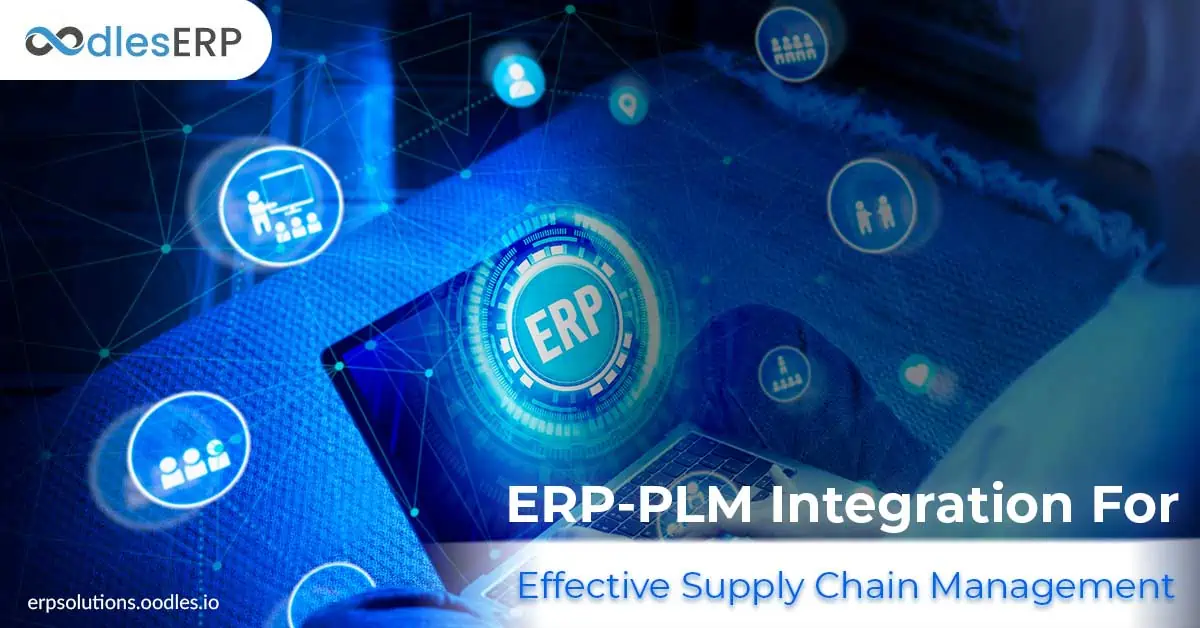Product lifecycle management (PLM) is a crucial business component for companies operating in manufacturing and supply chain industries to channelize their sales cycle. Developing and implementing a PLM software enables businesses to steer clear of the challenges associated with supply chain management. It is, therefore, critical to have your ERP systems integrated with a PLM software to efficiently manage supply chain activities. The ERP-PLM integration is even more important for small-scale manufacturers who are normally competing at many different levels. It would not only streamline their production processes but would also help them align their operations in accordance with the latest quality standards.
Here, we shed light on the importance of ERP-PLM integration for small and medium-sized manufacturing companies. At the same time, we highlight different ways that PLM integration helps streamline operations associated with supply chain management.
Also, Read Leveraging Intelligent ERP Solutions To Gain Competitive Edge
What Is Product Lifecycle Management?
Product lifecycle management (PLM) is a sequential process of managing different activities associated with a product from the time of its inception. It includes product design, development, manufacturing, quality control, sales, distribution, and customer service management. That being said, developing and implementing a PLM software helps streamline the aforementioned processes, accelerates time-to-market, and delivers maximum customer satisfaction.
Understandably, product lifecycle management is increasingly important for businesses of all types and sizes regardless of the underlying industry. However, manufacturing and supply chain industries come at the forefront of PLM applications and business use cases. In the following section, we shall explore the benefits of integrating PLM software with ERP systems for effective supply chain management.
The Importance of ERP-PLM Integration
ERP application development, as we know, is a staple element for enterprises operating in manufacturing and supply chain industries. Therefore, while implementing PLM software, it is critical to have it integrated with your ERP system to extract maximum SCM benefits. In addition to streamlining supply chain activities, it significantly improves product quality, accelerates time-to-market, and enables manufacturers to efficiently manage their production schedules. Let us now delve into the benefits that enterprises may avail through ERP-PLM integration with a focus on improving supply chain management.
Also, Read The Post-Modern ERP Strategy To Enhance Business Performance
Improved Collaborations
In addition to combining the features of both modules, ERP-PLM integration facilitates effective team collaborations and builds productive business synergies. In doing so, it significantly improves processes related to product design, development, manufacturing, warehousing, and supply chain management.
Better SCM Visibility
Developing and integrating dedicated modules for ERP and PLM boosts supply chain productivity by enabling businesses to gain better visibility into their SCM activities. As a result, it helps manufacturers keep close tabs on their supply chain activities and track on-site/off-site activities with minimal complications.
Accessibility
ERP-PLM integration in the supply chain aids in channelizing business data and making it accessible to all authorized entities. Any user with specific permissions can access data with ease across a wide range of supported devices. Besides, it provides a centralized software interface to efficiently manage ERP and PLM data in one place.
Data Security
Data security is yet another crucial aspect of ERP-PLM integration that helps businesses render top-tier security to their sensitive and mission-critical business data. The integration provides a shared repository to store all data related to different ERP and PLM functions. Besides, it maintains tamper-proof data records and makes data available to various business users, as and when required. At the same time, ERP-PLM integration helps remove clutter in supply chain data and facilitates effective team collaborations with easy access to business data at all levels.
You may also like to read The Importance of Data Warehousing In Supply Chain Management
The Road Ahead
As the whole world is slowly recovering from the adverse effects of the COVID-19 pandemic, it is important for businesses to future-proof their operational strategies. ERP-PLM integration could be critical for businesses, especially those belonging to the manufacturing industry to drive faster post-pandemic business recovery. It offers complete access to cross-channel product information and boosts productivity in addition to strengthening data integrity and driving steady revenue growth.
We, at Oodles, provide 360-degree ERP application development services to overcome cross-industry business challenges. Our seasoned developers use the latest tech stack and next-gen technologies to develop scalable ERP solutions for varying business needs. We have successfully completed several full-scale software projects for startups, SMBs and large-scale enterprises. To learn more about our custom ERP software services, drop us a line at [email protected].








